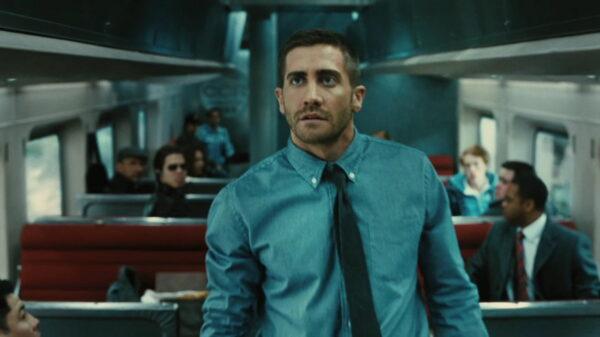The instances when human genius is passed down from one generation to the next are exceedingly rare. For artistic/creative/performance types, the rate is practically incalculable. There’s Lon Cheney Sr. and Jr., Paul McCartney and two of his daughters and that’s about it. You can now add David Bowie and his son Duncan Jones, a.k.a. Zowie Bowie, to that very short list.

Jake Gyllenhaal as Colter Stevens in "Source Code." Summit Entertainment





